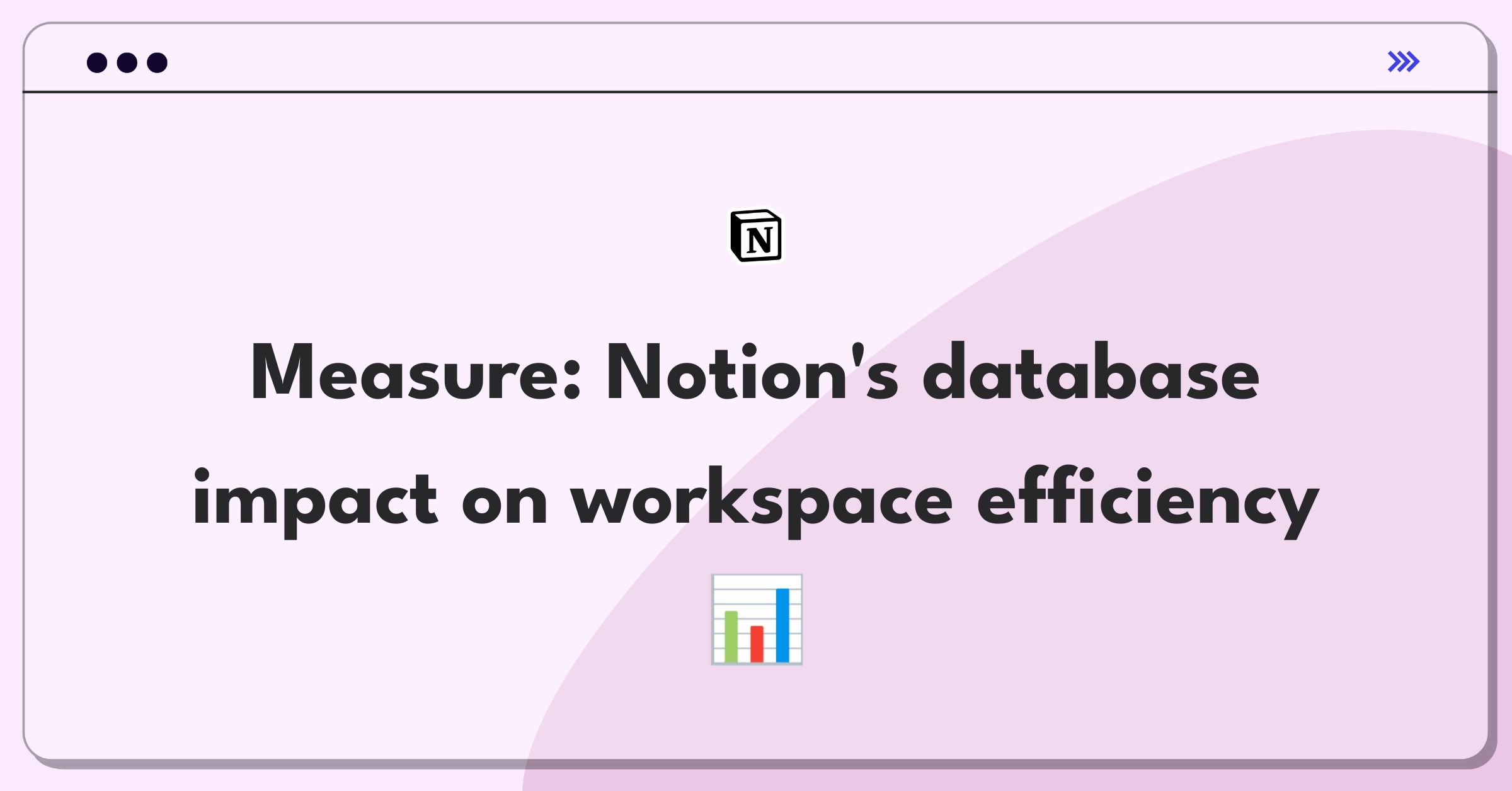Introduction
Defining the success of Notion's database functionality requires a comprehensive approach that considers multiple stakeholders and metrics. To effectively evaluate this core feature, I'll follow a structured framework covering product context, goals, and a hierarchy of success metrics while considering all key stakeholders.
Framework Overview
I'll follow a simple success metrics framework covering product context, success metrics hierarchy, and strategic initiatives.
Step 1
Product Context (5 minutes)
Notion's database functionality is a versatile feature that allows users to create and manage structured data within their workspace. It's a cornerstone of Notion's value proposition, enabling users to build custom workflows, organize information, and collaborate effectively.
Key stakeholders include:
- End users (individuals and teams)
- Notion's product team
- Notion's sales and marketing teams
- Notion's leadership and investors
User flow:
- Users create a new database or select a template
- They define properties (columns) and add entries (rows)
- Users can then view, filter, sort, and manipulate data
- Collaboration features allow sharing and real-time editing
This feature is central to Notion's strategy of being an all-in-one workspace, differentiating it from traditional note-taking apps and project management tools. Compared to competitors like Airtable, Notion's database functionality is more integrated with other content types and offers a more flexible, less technical user experience.
Product Lifecycle Stage: Growth - While the core functionality is established, Notion continues to expand and refine database features to capture more use cases and market share.
Software-specific context:
- Platform: Web-based with native apps for desktop and mobile
- Integration points: APIs for third-party integrations, import/export functionality
- Deployment model: Cloud-based SaaS with offline capabilities
Subscribe to access the full answer
Monthly Plan
The perfect plan for PMs who are in the final leg of their interview preparation
$99 /month
- Access to 8,000+ PM Questions
- 10 AI resume reviews credits
- Access to company guides
- Basic email support
- Access to community Q&A
Yearly Plan
The ultimate plan for aspiring PMs, SPMs and those preparing for big-tech
$99 $33 /month
- Everything in monthly plan
- Priority queue for AI resume review
- Monthly/Weekly newsletters
- Access to premium features
- Priority response to requested question


.png)